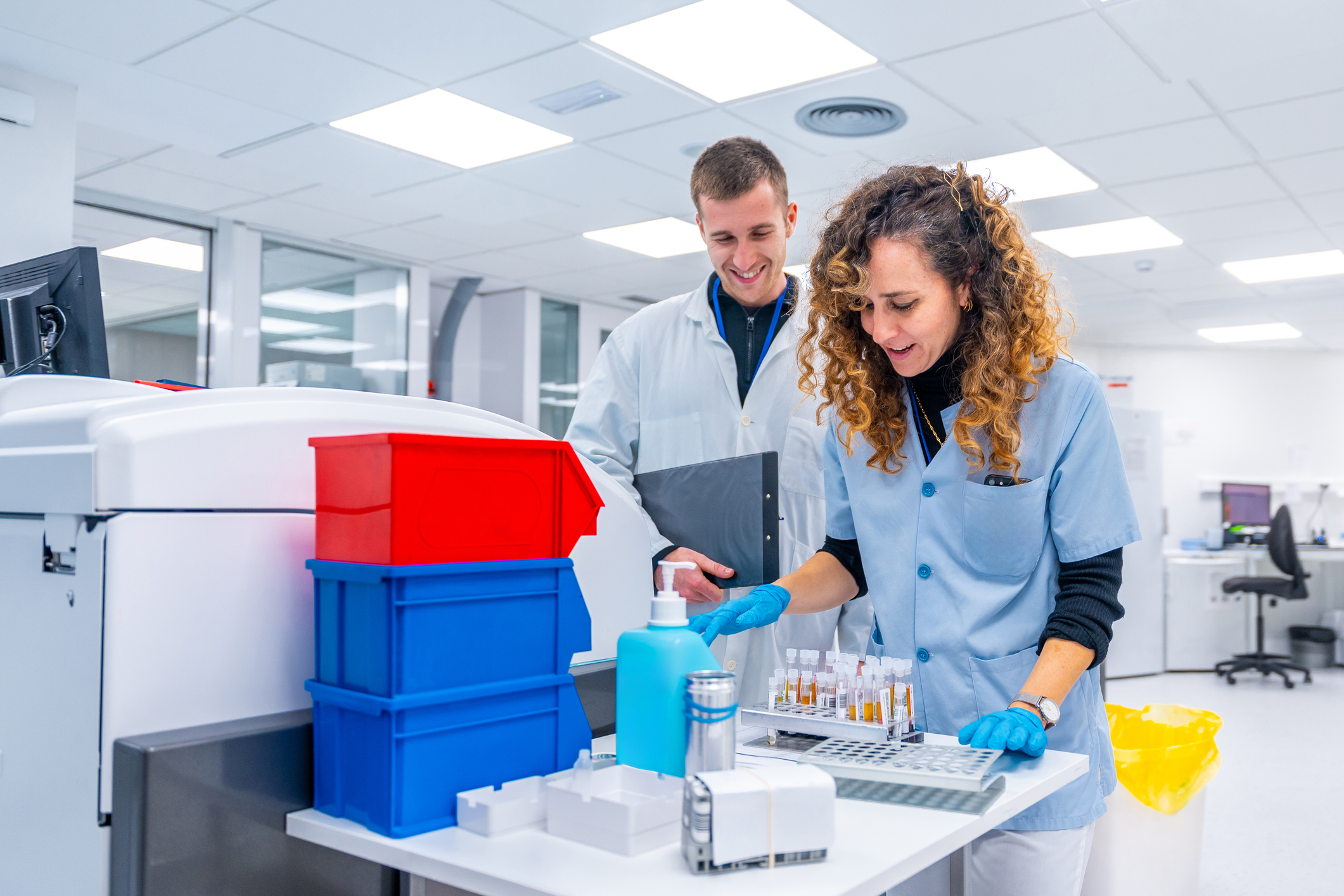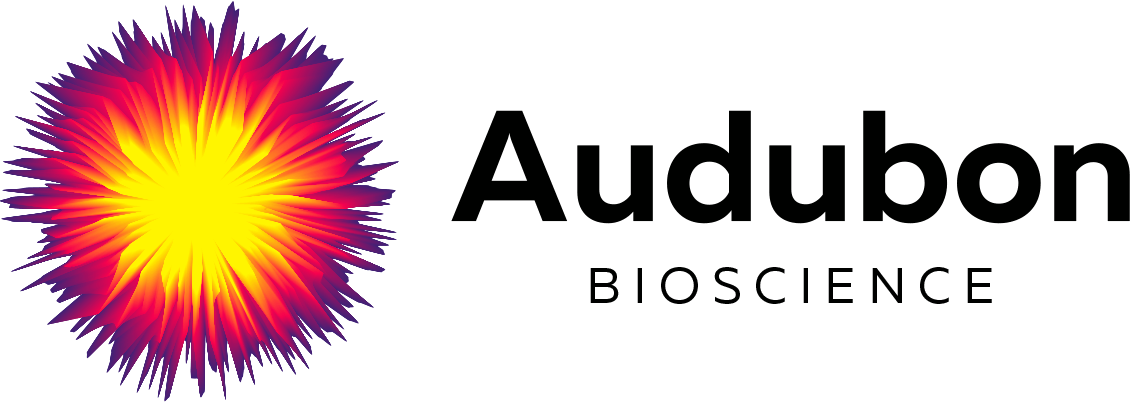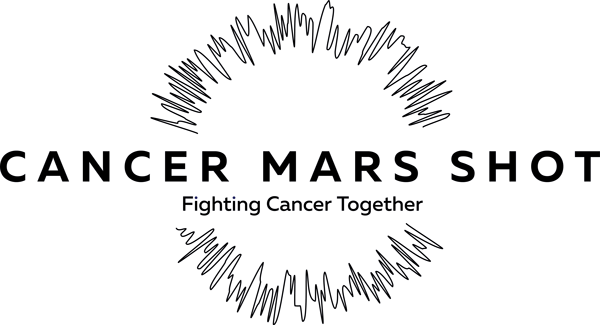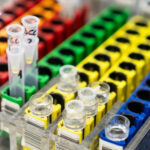Biobanking in Ukraine: A Legal Breakthrough Now

The Cabinet of Ministers of Ukraine just approved the Procedure for the Collection, Storage, and Use of Human Biological Samples for Research Purposes # 999.
This is a milestone achievement in establishing a legal framework for biobanking in Ukraine. It lays a firm foundation for integrating Ukrainian preclinical research into the international community.
Many outstanding teams have been working hard to make it happen: Ministry of Health of Ukraine, Audubon Bioscience, Ukrainian Association of Research Biobanks, Peace and Development Foundation, with the generous support of international partners.
Below is an unofficial translation in English made by Audubon Bioscience. All rights reserved.
This is summary from the Ministry of Health "Ukraine regulates the activities of biobanks".
APPROVED
by the Resolution of the Cabinet of Ministers of Ukraine
dated August 30, 2024. N 999
Procedure for the Collection, Storage, and Use of Human Biological Samples for Research Purposes
General Part
1. This Procedure defines the mechanism for the collection, storage, and use of human biological samples (hereinafter referred to as “biospecimens”) and associated data for research purposes, which encompasses conducting scientific research and utilizing their findings to advance the development of the healthcare industry.
This Procedure does not apply to the provision of medical care, including transplantation of human anatomical materials, donation of blood and its components and activities related to their use, functioning of cord blood stem cell banks, implantation, manufacturing of bioimplants and xeno implants, conducting clinical trials of medicinal products, and the use of assisted reproductive technologies.
2. The terms used in this Procedure shall have the following meanings:
Biobank is a legal entity or a separate structural subdivision of a legal entity that carries out biobanking in the following types of economic activities: experimental development in the field of biotechnology, healthcare, higher education, data processing, including the provision of data entry services.
Biobanking is an activity aimed at collecting, storing, and utilizing biospecimens and associated data for research purposes.
Biospecimens are anatomical materials, including organs (parts thereof), tissues, anatomical formations, cells, fetal materials, fluids, and other human specimens used for research purposes and not intended for direct clinical use in humans.
Biomedical research is a type of scientific research based on biospecimens and data associated with biospecimens, which is conducted to study the etiology and pathogenesis of diseases, develop innovative treatment and diagnostic approaches, and make advancements in medical science.
Data associated with biospecimens is personal and medical information from the biospecimen’s donor, including genetic data, and information on the characteristics and properties of biospecimens.
Biospecimen donor (hereinafter referred to as the “donor”) means an individual with full civil capacity who has voluntarily provided written informed consent (hereinafter referred to as the informed consent”) to the collection, storage, and use of his/her biospecimens and associated data for biobanking projects, or an individual with partial, incomplete or limited civil capacity whose informed consent has been provided by his/her legal representative. If other requirements for the age and legal capacity of the donor are regulated by special legislation, the requirements of the special legislation shall apply.
An investigator is a legal entity or an individual entrepreneur (resident or non-resident of Ukraine) that coordinates and conducts biomedical research in accordance with the agreement concluded with the sponsor of biomedical research.
Biobanking ethics committee (hereinafter referred to as the “ethics committee”) is an independent body that operates within the biospecimen-providing institution, oversees the observance of the rights and safety of the donor, and evaluates the ethical, moral, and legal aspects of biobanking projects.
Biospecimen-providing institution is a healthcare facility, research institution, laboratory, or other biobank, regardless of ownership, which participates in the implementation of a biobanking project by collecting, storing, and providing biospecimens and associated data.
Legal representatives are parents (adoptive parents) or one of the parents in the absence of the other in cases provided for by law, guardians, trustees, guardianship and trusteeship authorities, or other persons authorized by law to represent the interests of the donor, including the protection of his or her rights, freedoms, and legitimate interests within providing informed consent.
Sponsor of biomedical research is a legal entity or individual entrepreneur (resident or non-resident of Ukraine) that initiates, organizes, finances, and conducts biomedical research or enters into agreements with investigators to coordinate and conduct such research.
Waiver of informed consent is a decision of the ethics committee that approves the retrospective collection of biospecimens and associated data for a biobanking project.
Anonymization of biospecimens means the removal by the biobank of information from the data associated with biospecimens that directly or indirectly identify the donor.
Information sheet means a printed information certificate, the content of which meets the requirements outlined in clause 9 of this Procedure.
Potential donor is an individual who has voluntarily expressed a willingness to provide his or her biospecimens and associated data for further utilization in biobanking projects, and whose informed consent has not yet been obtained.
Biobanking project is the process of prospective and/or retrospective collection of biospecimens and associated data, their storage for use in biomedical research, which has clearly defined criteria for inclusion and exclusion of donors, requirements for the collection, storage, and use of biospecimens and associated data.
Prospective collection - is a collection of biospecimens and associated data collected during or after a medical intervention not related to biobanking projects, which may be provided to the biobank only after the donor or his/her legal representative has provided informed consent.
Retrospective collection is a collection of archival and/or residual biospecimens and associated data collected for diagnostic purposes not related to biobanking projects, which may be supplemented by a limited amount of clinical data or be anonymized, do not require further storage, are subject to disposal and may be provided to the biobank if a waiver of informed consent is approved by the ethics committee.
Other terms are used in the meaning given in the Fundamentals of Legislation of Ukraine on Health Care and other regulatory legal acts in the field of health care.
General principles of biobanks' activities
3. Biobanking is a purpose of biobank activities that aims at implementing biobanking projects for purposes of further biomedical research.
4. Biobank: collects, stores, and transfers biospecimens and associated data for further use;
ensures the protection of donors' personal data in accordance with the requirements of the legislation on personal data protection;
develops and approves the internal regulations of the biobank on the protection of donors` personal data in accordance with the requirements of the legislation in the field of personal data protection;
prevents unauthorized access to biospecimens and associated data, misuse of biospecimens, and disclosure of associated data;
take measures to ensure the safe behavior of biobank employees during the collection, storage, and transfer for further use of biospecimens and associated data;
ensures the creation of organizational, material, technical, and personnel conditions for the collection, storage, and transfer for further use of biospecimens and associated data.
5. The activities of biomedical research customers and/or investigators who cooperate on a contractual basis with the biobank to obtain access to the necessary biospecimens and associated data shall be carried out in compliance with the ethical principles of research involving human subjects.
6. Biobanking projects shall be formalized in the form of a protocol that is an integral part of the agreement between the participants of the biobanking project and contains a list of data on the nature of the collection of biospecimens and associated data (prospective and/or retrospective), criteria for inclusion and exclusion of donors, characteristics and properties of their biospecimens, requirements for the collection, storage and use of biospecimens and associated data.
7. The Biobank shall conclude agreements with the biospecimen-providing institution for the collection of biospecimens and associated data. If the biobank is a structural unit of the biospecimen-providing institution, the conclusion of such an agreement is not required.
The Biobank may enter into agreements with legal entities and individual entrepreneurs engaged in economic activities in the field of biotechnological research, bioinformatics, and data processing to process data related to biospecimens and prepare analytical reports and bioinformatics research.
Basic requirements for the collection, storage, and use of biospecimens and associated data
8. The collection, storage, and use of biospecimens and associated data are carried out only with the signed informed consent of the donor or his/her legal representative or under the waiver of informed consent approved by the ethics committee.
9. Prior to signing the informed consent, an employee of the biospecimen-providing institution shall provide the potential donor, including those with incomplete civil capacity, and/or his/her legal representative with a printed information sheet containing detailed information about the purpose of the biobanking project and the collection of biospecimens and associated data. The text of the information sheet should be written in Ukrainian. Such an information sheet for each biobanking project shall be developed by the biobank and approved by the ethics committee.
If the potential donor/donor or his/her legal representative has additional questions, the employee of the biospecimen-providing institution must provide appropriate explanations and answer the questions.
After signing the informed consent by the donor or his/her legal representative, the employee of the biospecimen-providing institution shall indicate on such consent his/her surname, name and patronymic (if any), position at the biospecimen-providing institution, and shall certify this information with his/her signature.
10. If the donor is an individual with incomplete civil capacity, the collection, storage and use of his/her biospecimens and associated data for biobanking projects shall be carried out only with his/her consent, which shall be recorded in the informed consent signed by his/her legal representative. If the donor is an individual with partial or limited civil capacity, information about the familiarization of such a person with the provisions of the information sheet and informed consent shall be recorded in the informed consent signed by his/her legal representative.
When informing an individual with partial, incomplete or limited civil capacity about the purpose of the biobanking project and the nature of the collection of his/her biospecimens and associated data, the employee of the biospecimen-providing institutions shall take into account his/her age, intellectual capacity, level of maturity (including emotional and psychological maturity), individual circumstances and family situation.
If an individual with partial, incomplete, or limited civil capacity, who can express his/her opinion independently, refuses the collection, storage, and usage of his/her biospecimens and associated data for biobanking projects, the above procedures shall not be carried out in respect of such individual.
11. Depending on the use of biospecimens and associated data in biobanking projects:
special informed consent - provided for the use of biospecimens and associated data in a specifically defined biobanking project, herewith the significant changes to such a project require re-obtaining informed consent;
universal informed consent - is provided for the use of biospecimens and associated data in any biobanking projects (including a specifically defined project) that may be conducted in the future and differ in terms of the purpose and methods of biomedical research.
12. Informed consent to provide biospecimens and associated data of the donor with partial, incomplete or limited civil capacity shall be provided by his/her legal representative.
If, in accordance with Article 38 of the Civil Code of Ukraine, the civil capacity of the donor whose civil capacity has been limited is restored, or if, in the course of the biobanking project, the donor with partial or incomplete civil capacity acquires full civil capacity, he or she may withdraw the informed consent provided by his or her legal representative.
13. The form of informed consent is determined by the biobank and approved by the ethics committee. Depending on the specifics of the biobanking project, the informed consent contains (but is not limited to) information about:
name of the biobanking project;
the goal of the biobanking project;
methods of biomedical research to be conducted (provided that the biobank is the holder of such information);
the list and volume of biospecimens to be collected in the course of the biobanking project, including information on the permissible volumes and frequency of biospecimen collection;
consent to the processing and transfer of data associated with the biospecimens to the participants of the biobanking project;
a list of data associated with the biospecimens that will be collected and stored with the biospecimens;
conditions and duration of storage of biospecimens and associated data;
the duration of the donor's participation in the biobanking project, including the possibility of requesting additional clinical data in an impersonal form within a specified period to assess the dynamics of the disease and analyze statistical data;
known and possible risks for the donor associated with his/her participation in the biobanking project and security measures to be taken by the biobank in the course of the biobanking project to protect the donor's personal data;
the ways in which the donor or his/her legal representative can contact the biobank directly to find out information about the further use of biospecimens and associated data;
the procedure for exercising the right of a donor or his/her legal representative to withdraw informed consent;
free participation of the donor in the biobanking project.
14. The informed consent signed by the donor or his/her legal representative shall be kept at the biospecimen-providing institution for ten years, but not less than the period during which the biospecimens are stored.
15. The informed consent may be withdrawn by the donor or his/her legal representative during the implementation of the biobanking project. The withdrawal of informed consent shall be executed in paper or electronic form and signed by the donor or his/her legal representative. The collection, storage and use of donor biospecimens and associated data after the withdrawal of informed consent by the donor or his/her legal representative is prohibited, and the biospecimens and associated data shall be destroyed.
The destruction of donor biospecimens is carried out in accordance with the requirements of the State Sanitary and Anti-epidemic Rules and Regulations for Medical Waste Management, approved by the Order of the Ministry of Health of Ukraine dated June 8, 2015 No. 325.
The biobank shall be released from the obligation to destroy anonymized biospecimens, as stated in the informed consent, after the transfer of anonymized biospecimens and associated data to investigators, unless otherwise provided by the agreement between the participants in the biobanking project.
16. In the event of circumstances that make it impossible to obtain an informed consent or revise it due to the reasonable impossibility of involving the donor or his/her legal representative (in particular, lack of up-to-date contact information, death), consent to the collection, storage, and use of biospecimens and associated data is granted by the ethics committee in the form of waiver of informed consent.
17. The ethics committee may grant a waiver of informed consent for the retrospective collection of biospecimens and associated data during the implementation of a biobanking project.
18. In the process of biospecimens collection, including material obtained during diagnostic or surgical interventions, which is subject to pathological examination, it is allowed to collect only residual biospecimens that are not used to establish and further confirm the diagnosis, use of additional research methods and/or archival storage.
Personnel who are in direct contact with biospecimens should follow the measures and means to prevent infection during patient care, as determined by the Ministry of Health.
19. Procedures for the collection, storage, and transfer for further use of biospecimens and associated data are established by standard operating procedures defined by the relevant biobank.
Ensuring ethical principles of biobanking
20. An ethics committee shall be established at the biospecimen-providing institution to assess the ethical and moral and legal aspects of biobanking projects.
The ethics committee assesses the ethical, moral and legal aspects of the biobanking project and makes a decision on approval or reasoned refusal to implement the biobanking project at the biospecimen-providing institution.
The approval of the ethics committee for the implementation of the biobanking project at the biospecimen-providing institution is subject to review in case of any changes to the conditions for the implementation of the biobanking project specified in clause 13 of this Procedure.
If the biospecimen-providing institution conducts clinical trials of medicinal products for which an appropriate ethics committee has been established, such a committee may perform the functions of an ethics committee, subject to compliance with the requirements of this Procedure.
21. The ethics committee shall ensure:
- protection of the rights and interests of the donor or his/her legal representative aimed at obtaining information about the biobanking project by the donor or his/her legal representative and observance of the principle of voluntary informed consent, excluding any risks associated with coercion to such consent, limitation of information for decision-making, any means of discrimination regarding the possibility to participate in the biobanking project;
- assessing the ethical, moral and legal aspects of biobanking projects;
- monitoring compliance with ethical principles in the implementation of biobanking projects involving the donor;
- verification of compliance of the informed consent with the terms and conditions of the biobanking project;
- making decisions on providing waiver of informed consent;
- making decisions on the extension of the donor's personal data storage period.
22. The ethics committee is entitled to:
- receive information from the biobank/biospecimen-providing institution about all additions and amendments made to the biobanking project, conflict situations related to violation of the rights, interests, safety, and well-being of the donor or his/her legal representative, ethical and moral and legal aspects during the implementation of the biobanking project at the biospecimen-providing institution;
- decide on temporary or complete suspension of the biobanking project at the biospecimen-providing institution in case of violation of the rights, interests, safety, and welfare of the donor or his/her legal representative;
- determine the circumstances that make it impossible to obtain informed consent and approve a waiver of informed consent.
23. The head of the biospecimen-providing institution determines the ethics committee and its membership.
The ethics committee consists of medical professionals, scientists, and other professionals, such as legal experts, ethics experts, and representatives of public associations (upon their consent).
The composition of the Ethics Committee must meet the requirements for balance by the ratio of women to men and consist of at least five persons (including at least one person who is not a scientific or medical professional and at least one person who is not an employee of the biospecimen-providing institution).
The Chairman leads the ethics committee. The ethics committee's chairman, deputy, and secretary are elected by open vote with a simple majority of votes at the committee's first meeting.
24. The ethics committee shall act in accordance with the requirements of the law and the Regulations on the ethics committee approved by the head of the biospecimen-providing institution.
The Regulation on the ethics committee includes procedures for:
appointment of the chairman, deputy chairman of the Ethics Committee, and secretary of the Ethics Committee;
planning and holding meetings, informing the members of the Ethics Committee about the meetings;
monitoring to ensure the protection of the rights, interests, safety, and welfare of the donor or his/her legal representative, ethical and moral aspects of biobanking projects;
interaction between the biobanking project participants and the ethics committee.
25. The ethics committee's work is conducted in the form of meetings. The ethics committee shall meet at intervals determined by the ethics committee regulations.
A meeting of the ethics committee is valid if two-thirds of its members are present.
26. The ethics committee shall make decisions by open voting by a simple majority of votes of the members of the ethics committee present at the meeting. In case of equal distribution of votes, the vote of the chairman or his deputy (in the absence of the chairman) is decisive.
In the event of a real or potential conflict of interest between the members of the ethics committee and their inability to participate in its work, they shall immediately notify the chairman in writing. The members of the ethics committee who have a conflict of interest shall not participate in the processing, discussion, and decision-making on issues in which they have a conflict of interest.
The decisions of the ethics committee are formalized in a protocol signed by the chairman or, in the absence of the chairman, by his deputy.
27. The ethics committee shall assess the ethical, moral, and legal aspects of the biobanking project within 14 calendar days from the date of submission of the biobanking project materials to the ethics committee. The composition of the biobanking project materials is determined by this Procedure and shall contain the following information:
- name of the biobanking project;
- the purpose of the biobanking project;
- a summary of the proposed biobanking project, which contains data on:
the list and volume of biospecimens to be collected in the course of the biobanking project, including information on the permissible volumes and frequency of biospecimen collection;
a list of data associated with biospecimens that will be collected and stored with the biospecimens;
conditions and duration of biospecimens and associated data storage;
the duration of the donor participation in the biobanking project, including the mechanism for requesting additional clinical data in an impersonal form within a specified period;
known and possible risks for donors related to their participation in the biobanking project and security measures to be taken by the biobank during the implementation of the biobanking project to protect the personal data of donors;
ways in which donors or their legal representatives can contact the biobank to find out information about the further use of biospecimens and associated data or to withdraw informed consent;
procedures for exercising the right of donors or their legal representatives to withdraw informed consent;
4. a generalized description of the design of biomedical research, including methods of its conduct (provided that the biobank is the administrator of such information);
5. the full name of the biobank's legal entity, its code according to the EDRPOU, location, address for correspondence in Ukraine (if any), telephone number, and e-mail address.
The ethics committee may request additional information from the biobank in order to make a decision on the implementation of the biobanking project in the absence of information in the materials of the biobanking project specified in this clause. In this case, the term for consideration and decision-making shall be extended, but not more than 10 calendar days from the date of receipt of additional information.
28. The decision of the ethics committee to approve the implementation of the biobanking project at the biospecimen-providing institution or to approve a waiver of informed consent should contain the following information:
- the date of the decision;
- list of documents reviewed;
- recommendations of the ethics committee (if any);
- a list of members of the ethics committee who participated in the meeting and voting.
29. The decision of the ethics committee to refuse to implement the biobanking project at the biospecimen-providing institution:
must contain a reasoned justification indicating the shortcomings and recommendations for their elimination;
does not limit the right of the biobank to reapply to the ethics committee.
30. The ethics committee shall keep the documents related to the biobanking project in paper and/or electronic form for ten years, but not less than the term of the biobanking project.
Sources of funding for biobanking activities
31. Biobanking activities shall be financed at the expense of the biospecimen-providing institution and/or the biobank and/or other sources not prohibited by law.
32. Payment to biospecimen-providing institution for goods, works and services related to biobanking shall be made by the biobank on the basis of concluded agreements (except for a biobank that is a structural unit of the biospecimen-providing institution) on the basis of economically justified costs associated with the implementation of biobanking activities.
33. If a biobank is a structural unit of a biospecimen-providing institution belonging to healthcare institutions of state and municipal ownership, the costs of its operation, as well as financing of biobanking activities and the functioning of the ethics committee, shall be carried out at the expense of the institution's own funds and/or other sources not prohibited by law, without involvement of funds from the state budget and the program of state guarantees of medical care for the population.
Accelerate your specific research projects with our scientific experts today. To learn more about our dedication to engineering breakthrough therapies and diagnostic solutions that target specific genetic mutations and cellular pathways to improve patient outcomes, visit our website or speak to a member of our team.




